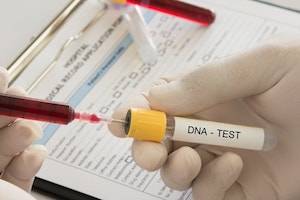Steven Avery Denied a New Trial
 By James Lewis
By James Lewis
This week Circuit Court Judge Angela Sutkiewicz of Sheboygan County considered whether to grant a new trial in the Steven Avery case; a case that captured the country’s attention with the popular Netflix series, “Making a Murderer.” The case centers on the alleged rape and murder of Teresa Halbach. The Netflix mini-series highlights the unusual police investigation and trial that resulted in Avery being convicted and sentenced to life in prison. However, the newest development that is not documented in the mini-series is the court’s denial of Avery’s motion for a new trial. As grounds for the denial, the court held that Avery ignored a procedural rule that requires a defendant to prove new evidence was not available in previous post-conviction motions.
This latest motion for a new trial is Avery’s second attempt to have a jury re-hear the case. Avery’s attorney argued that developments in DNA testing and ballistic forensics constituted “new evidence” under Wisconsin law and required the court to grant a new trial. The court’s denial of Avery’s motion for a new trial addressed three specific claims of “new evidence.”
First, Avery argued that a new scientific study refutes the evidence admitted in the original trial that found Avery’s DNA on the hood latch of Halbach’s SUV. Avery contended newly developed DNA sourcing analytics suggest it was “highly unlikely that [Avery’s] touch left DNA on the hood latch.” The court rejected this argument because the scientific data was inconclusive. The report Avery’s legal team relied on showed that out of 15 samples collected from similar hood latches, four samples revealed DNA. The court found the report did not provide “quantifiable statistics” to refute the DNA evidence used in the original trial.
Avery next argued the court should grant a new trial because DNA testing shows that a key found in Avery’s bedroom proves it was planted. The key to Halbach’s SUV contained an amount of DNA that was too high for someone to transfer to the key by blood or touch, argues Avery’s DNA expert. The amount of DNA on the key suggests that it originated from a “DNA rich source, such as a toothbrush.” The court also rejected this argument. Judge Sutkiewicz wrote “While the defendant asserts that someone took his toothbrush and planted DNA on the [key], there is no evidence submitted that establishes a break in or the theft of a toothbrush other than the defendant’s conclusory allegations.” The court did not address whether the science supporting Avery’s claim is valid.
Finally, Avery presented evidence that a bullet recovered at the crime scene was wrongfully introduced as proof of Halbach’s murder. A forensic report showed that the bullet used at trial did not show signs of passing through bones. At trial, the prosecution argued the bullet entered Halbach’s skull and killed her. Avery also argued the forensic report showed red stains on the bullet were actually paint, not blood. The court, however, determined that the report is not as clear cut as Avery argued. The court’s determination focused on the finding that the expert’s report could not provide definitive proof determining the red substance on the bullet. Additionally, the expert stated that more analysis of the bullet would be necessary to conclusively determine all particles present on the surface of the bullet.
The court based its rejection of Avery’s new evidence on its finding that Avery’s legal team failed to meet a procedural burden of proof. This rule requires defendants to assert any and all grounds for a new trial in their first post-conviction motion. The motion before Judge Sutkiewicz was Avery’s second post-conviction motion. Avery’s legal team failed to prove that the evidence supporting their second motion was new evidence that was not available to Avery at the time he brought his first post-conviction motion.
If you would like to speak with a skilled Milwaukee criminal defense attorney, call 414-271-1440 today.







